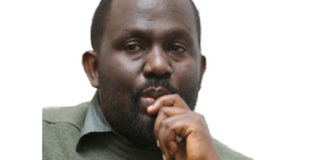Why death of UPDF troops in Somalia is very upsetting

I was extremely upset when I read the stories in Daily Monitor about 12 UPDF soldiers with Amisom who were killed during an al-Shabaab attack on African Union troops in Somalia’s Lower Shabelle region recently.
They were deaths that could have been prevented, if they had been travelling in armoured trucks, which they lack.
It was a pathetic moment to read the pleas to the US to provide armoured trucks and helicopters for Amisom.
This is Africa! Our governments will find helicopters and armoured cars to contain protestors on the streets of their capitals, but want someone else to pay for the safety of their troops in a critical pan-African peacekeeping mission.
I am a quasi-pacifist and on-and-off anti-militarist, so ideally, I should not be so upset when soldiers are killed in a military enterprise.
In addition, the UPDF has been the cornerstone of the NRM regimes’ anti-democratic manoeuvres, and its rogue elements have committed atrocities in Kasese, Teso, the north and Karamoja over the years.
Despite all these minuses, I am still unfashionably “pro the boys”. Over the years I have examined this inconsistent attitude, and what could be considered stupidity on my part. Well, it turns out many Ugandans of my generation feel the same way.
They are generally pro-UPDF, and direct their anger at the “rotten apples” and crudely partisan elements in it.
There is a good reason for it. Counting from my secondary school, to high school and university, in virtually every class, there is at least one friend and two classmates who over the last 35 years, have died in war or because they were suspected to be supporting rebels, in the last year of the Idi Amin regime and during Obote II as many had joined the Uganda Patriotic Movement (UPM) that was hounded after Museveni took to the bush.
If they were not classmates, they were playmates in the neighbourhoods where we grew up as kids. In a family that was very close to us, all the boys except one who was away in the US, died fighting in President Yoweri Museveni’s National Resistance Army (NRA) war.
Close friends at university like retired Maj Gen and FDC president Mugisha Muntu and others “disappeared” and those of us who didn’t know, wondered what had happened to them.
On the day before Museveni made his famous “not a change of guard but fundamental change” speech on the steps of Parliament on January 26, 1986, the victorious NRA rebels held their first formal press conference at President’s Office.
It was not an occasion to miss, so we crowded the room. One by one, the commanders as they were called in the pre-hierarchy days, filed in. And with everyone a mystery was solved. In came Jim Muhwezi, then Muntu, and…
Then we also started to learn the stories of the many friends and classmates who didn’t make it out of Luweero alive.
I never got over Muntu. Sitting in his Livingstone Hall room playing Barry White and mulling the times and seasons, I would have eaten my cap if you had told me he would go to the bush and take up a gun.
If you were to seek to blame groups of Ugandans for ruining this fair country, you would have to indict the immediate post-independence generation, and those who threw away the chance to salvage it after Amin’s ouster in 1979.
Whatever mistakes were made, and flaws of the NRA, it still represented the point at which the largest cohort of educated and middle class Ugandans took the highest risk to make a better country.
Mahmood Mamdani used to say that whatever one’s political views, we “can’t sit here in Kampala and pretend that something historic and important didn’t happen in Luweero”.
For people born earlier, and those who have come in later years, it might not be the case. But for our generation, even those who didn’t fight or support the war, Luweero was still the grand moment of redemption.
There have been three such moments in Uganda in the last 150 years. In the late 1800s in kings Kabalega and Mwanga’s war against British colonialism; in the independence struggle; and in the early 1980s.
The evolution of the UPDF from several, and ultimately and mainly the NRA in the early 1980s, means that our generation cannot repudiate it without throwing away our moment of redemption.
Former prime minister Kintu Musoke used to say that “the difference between Museveni and his group and all other progressives in Uganda is that everyone talked about revolution. They actually went out and succeeded”.
We are prisoners of the more glorious parts of this history, and to the memory of friends we lost. I guess we are stuck with it.
Mr Onyango-Obbo is the publisher of Africa data visualiser Africapedia.com and explainer site
Roguechiefs.com.
Twitter@cobbo3




